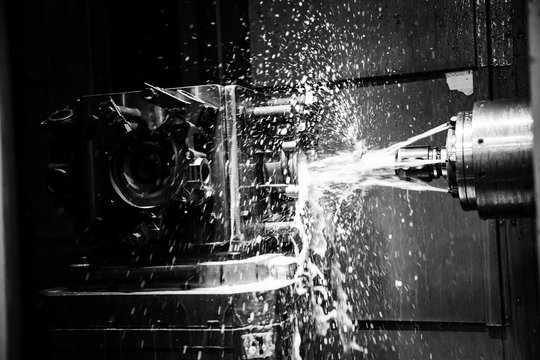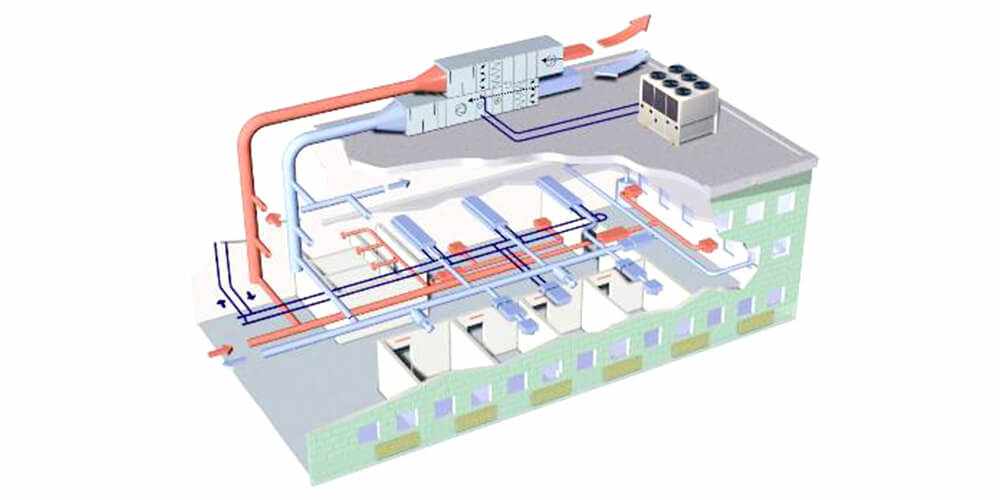
Introduction
The Russia HVAC Systems Market is at a crucial juncture, seeking sustainable and efficient heating solutions to combat its notoriously harsh winters, particularly in the commercial sector. As global environmental concerns intensify and energy efficiency regulations tighten, innovative technologies like CO2 heat pumps are garnering increasing attention. This comprehensive article explores the potential of CO2 heat pumps as a viable and sustainable solution for commercial heating applications across Russia, analyzing their advantages, challenges, and suitability for the region's unique climatic conditions.
Understanding the Heating Demands of Russia's Commercial Sector:
Russia's commercial sector encompasses a wide array of buildings, including offices, retail spaces, educational institutions, healthcare facilities, and industrial complexes. These buildings often require significant heating capacity for extended periods due to the country's long and severe winters. Traditional heating methods in Russia have heavily relied on fossil fuels like natural gas and coal, contributing to greenhouse gas emissions and air pollution. The need for cleaner and more efficient heating alternatives is becoming increasingly pressing.
CO2 Heat Pumps: A Natural and Efficient Solution:
CO2 (R744) heat pumps utilize carbon dioxide as a natural refrigerant. Unlike synthetic refrigerants with high global warming potentials (GWPs), CO2 has an extremely low GWP of 1, making it an environmentally friendly choice. Furthermore, CO2 boasts excellent thermodynamic properties, particularly its high volumetric heating capacity and efficient heat transfer at low temperatures. This makes it a potentially ideal refrigerant for demanding heating applications in cold climates like Russia.
Advantages of CO2 Heat Pumps for Commercial Heating in Russia:
High Heating Capacity at Low Temperatures: One of the most significant advantages of CO2 heat pumps is their ability to deliver high heating capacity even at extremely low ambient temperatures, often down to -20°C or even lower. This is a critical requirement for reliable commercial heating in Russia's prolonged and frigid winters. Traditional heat pumps using synthetic refrigerants often experience a significant drop in performance and heating capacity in such conditions, requiring supplementary heating systems.
Excellent Coefficient of Performance (COP): Modern CO2 heat pumps can achieve impressive COPs, meaning they can deliver several units of heating energy for each unit of electricity consumed. This translates to significant energy savings and reduced operating costs for commercial building owners in Russia, where energy prices can be substantial.
Environmentally Friendly Refrigerant: The use of natural CO2 refrigerant eliminates the concerns associated with the phase-down of high-GWP synthetic refrigerants under international agreements. This future-proofs investments in CO2 heat pump technology and aligns with Russia's increasing focus on environmental sustainability.
Hot Water Production Capability: CO2 heat pumps can efficiently produce high-temperature hot water, which is essential for various commercial applications, including domestic hot water supply, process heating, and snow melting systems. This versatility makes them a comprehensive heating solution for commercial buildings.
Safety: CO2 is a non-flammable and non-toxic refrigerant, offering a high level of safety for occupants and maintenance personnel in commercial buildings.
Durability and Reliability: CO2 heat pump systems are generally robust and designed for long-term operation, ensuring a reliable heating source for commercial applications throughout the harsh Russian winter.
Challenges and Considerations for CO2 Heat Pump Adoption in Russia:
Despite the significant advantages, the widespread adoption of CO2 heat pumps for commercial heating in Russia faces certain challenges and considerations:
Initial Investment Costs: The initial investment cost of CO2 heat pump systems can be higher compared to conventional heating systems. However, this can be offset by lower operating costs due to their energy efficiency and potential for government incentives or subsidies for green technologies.
Technological Familiarity and Expertise: The technology of CO2 heat pumps is relatively newer compared to traditional systems. There might be a need for increased training and expertise among installers, maintenance technicians, and building operators in Russia to ensure proper system design, installation, and servicing.
Infrastructure Development: The widespread adoption of CO2 heat pumps may require some adjustments in the existing HVAC infrastructure and supply chains in Russia to ensure the availability of components and skilled workforce.
Performance Optimization in Extreme Cold: While CO2 heat pumps perform well in cold climates, optimizing their performance in the most extreme Russian winter conditions might require careful system design and integration with supplementary heating where necessary. Hybrid systems combining CO2 heat pumps with other efficient heating sources could be a viable solution in certain applications.
Awareness and Education: Raising awareness among building owners, developers, and HVAC professionals in Russia about the benefits and capabilities of CO2 heat pump technology is crucial for driving adoption. Educational initiatives and demonstration projects can play a significant role in this process.
Competition from Traditional Heating Systems: The established infrastructure and relatively lower upfront costs of traditional fossil fuel-based heating systems present a competitive challenge. Government policies, incentives, and carbon pricing mechanisms can help level the playing field and promote the adoption of sustainable alternatives like CO2 heat pumps
CO2 heat pumps hold significant potential across various niche applications within Russia's commercial sector:
Hotels and Hospitality: The high hot water demand in hotels makes CO2 heat pumps an ideal solution for providing both space heating and ample hot water efficiently and sustainably.
Hospitals and Healthcare Facilities: The need for reliable and hygienic heating and hot water in healthcare settings aligns well with the capabilities of CO2 heat pumps, ensuring patient comfort and reducing environmental impact.
Sports and Leisure Centers: Facilities with swimming pools and large shower areas have significant hot water demands, making CO2 heat pumps a cost-effective and environmentally sound choice.
Industrial Processes: Certain industrial processes require high-temperature hot water or steam, which can be efficiently generated by high-temperature CO2 heat pumps, reducing reliance on fossil fuel boilers.
Snow Melting Systems: CO2 heat pumps can be used to power energy-efficient snow melting systems for walkways, driveways, and parking areas in commercial properties, enhancing safety and reducing maintenance.
Data Centers with Heat Recovery: Data centers generate significant waste heat. CO2 heat pumps can be integrated with heat recovery systems to capture this waste heat and utilize it for space heating or hot water production, significantly improving overall energy efficiency.
Agricultural Applications (Greenhouses): Maintaining optimal temperature and humidity in greenhouses during the long Russian winters requires substantial heating. CO2 heat pumps can provide an energy-efficient and environmentally friendly solution for climate control in agricultural settings.
Policy and Regulatory Landscape in Russia:
The success of CO2 heat pump adoption in Russia will be significantly influenced by the country's energy policy and environmental regulations. Government initiatives promoting energy efficiency, carbon reduction targets, and financial incentives for green technologies can create a favorable market environment for CO2 heat pumps. Raising awareness through pilot projects and educational programs can also play a crucial role in encouraging their uptake.
Conclusion
CO2 heat pumps present a compelling and sustainable solution for meeting the significant commercial heating demands of Russia's harsh winters. Their high heating capacity at low temperatures, excellent energy efficiency, and environmentally friendly refrigerant make them a strong contender to replace traditional fossil fuel-based heating systems. While challenges related to initial costs, technological familiarity, and infrastructure need to be addressed, the long-term benefits in terms of reduced operating costs, environmental sustainability, and energy security are substantial.
By fostering technological advancements, providing adequate training and education, implementing supportive policies and incentives, and raising awareness among stakeholders, Russia can unlock the immense potential of CO2 heat pumps to create a cleaner, more efficient, and sustainable future for commercial heating across the nation, even in the face of its formidable winters. The transition towards natural refrigerant-based heating solutions like CO2 heat pumps aligns with global environmental goals and offers a pathway to a more resilient and environmentally responsible energy future for Russia.










Write a comment ...